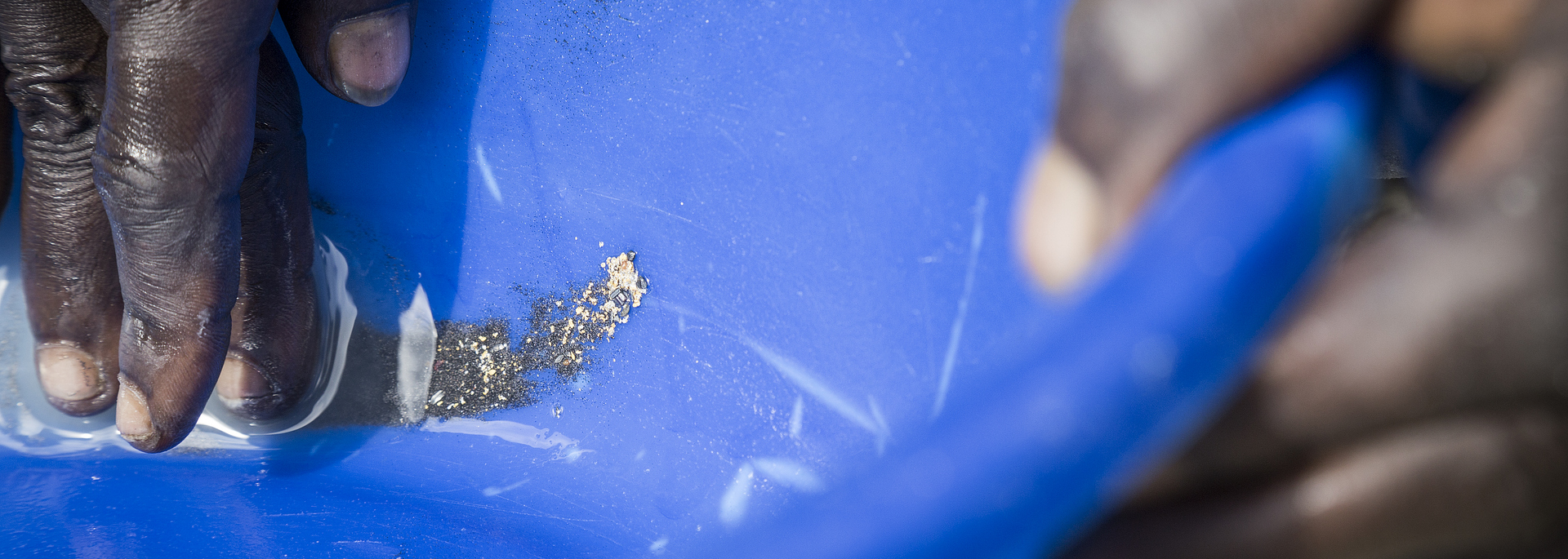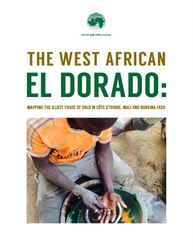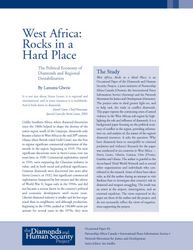
IMPACT in Côte d’Ivoire
Our work in Côte d’Ivoire focuses on supporting new approaches to natural resource management.
Originally named for a thriving ivory trade, Côte d’Ivoire has more recently been known for its abundance of other natural resources. Yet, more than half of Côte d’Ivoire’s 22.7 million people live in poverty. The population lacks not only income but also faces poor education, health, and living standards. Now, despite recent conflict, the country is looking towards sustainable peace and development.
Côte d’Ivoire remains amongst the world’s top cocoa producers, and is a leading global exporter of coffee and palm oil. While almost 70% of Ivorian people are still engaged in agricultural activities, since the end of the civil war there has been a surge in artisanal mining. The government estimates there are approximately 500,000 artisanal gold miners in the country.
Diamonds are an equally important resource. Côte d’Ivoire is a member of the Kimberley Process (KP) and is required to put in place internal controls that certify the origin of its rough diamonds as conflict-free. During the civil war, diamond exports from the country were under KP embargo, with sanctions lifted in 2014.
Today, the country still struggles with the illicit trade of diamonds and other minerals, losing important tax revenue. It is a member of the Regional Approach for the Mano River Union, collaborating with its neighbours Liberia, Guinea, and Sierra Leone to strengthen KP compliance.
Resources
Côte d’Ivoire’s key natural resources include cocoa, oil and gas, rubber, diamonds, cobalt, copper, timber, water, and fish.

We Reveal
Our research in West Africa investigates the drivers of the illicit trade of conflict-prone natural resources and highlights recommendations for the region’s countries, including Côte d’Ivoire. We examine issues such as formalization of the artisanal mining sector, fiscal reform, harmonization of legislation, and strengthening of internal controls to end smuggling. We also provided analysis of certification, traceability, and due diligence as it applies to diamonds and gold in the region.

We Innovate
As part of our work to transform mineral supply chains, we’ve led efforts to support traceability and due diligence, while promoting benefits for Ivorian miners and their communities. We are member of the technical team supporting the KP Regional Approach for the Mano River Union, assisting the development of a strategy to address the illicit trade of diamonds and KP compliance. We share best practices on diamond governance and provide capacity building to Ivorian stakeholders, including policymakers, private sector, and civil society actors on the implementation of KP internal controls and OECD Due Diligence Guidance for Responsible Supply Chains of Minerals from Conflict-Affected and High-Risk Areas. Through our collaboration with the KP Civil Society Coalition, we provide support to our partner in Côte d’Ivoire to participate in the KP, as well as support and spotlight their capacity for independent monitoring of KP internal controls and due diligence in the natural resource sector.

We Engage
We drive dialogue with our partners in Côte d’Ivoire, including policymakers and the private sector to implement due diligence and improved traceability, as well to ensure benefits reach miners and their communities. Through our partnership with the KP Civil Society Coalition, civil society from Côte d’Ivoire and West Africa brings the voices and concerns of artisanal miners to industry and governments. Together, we engage governments to strengthen their internal controls, and encourage the private sector to put in place traceability and due diligence for their mineral supply chains.
Recent Highlights
Kimberley Process Regional Approach for the Mano River Union in West Africa
IMPACT is a member of the technical team supporting Côte d'Ivoire, Liberia, Guinea, and Sierra Leone in developing a joint plan to address the illicit trade of diamonds and to ensure Kimberley Process (KP) compliance through the Regional Approach for the Mano River Union.

The West African El Dorado: Mapping the Illicit Trade of Gold in Côte d'Ivoire, Mali and Burkina Faso
January 2017
Partnership Africa Canada investigates challenges in the governance of artisanal gold mining in the three countries—and the vulnerabilities posed by the illicit trade of gold on the region.Past Research Reports

